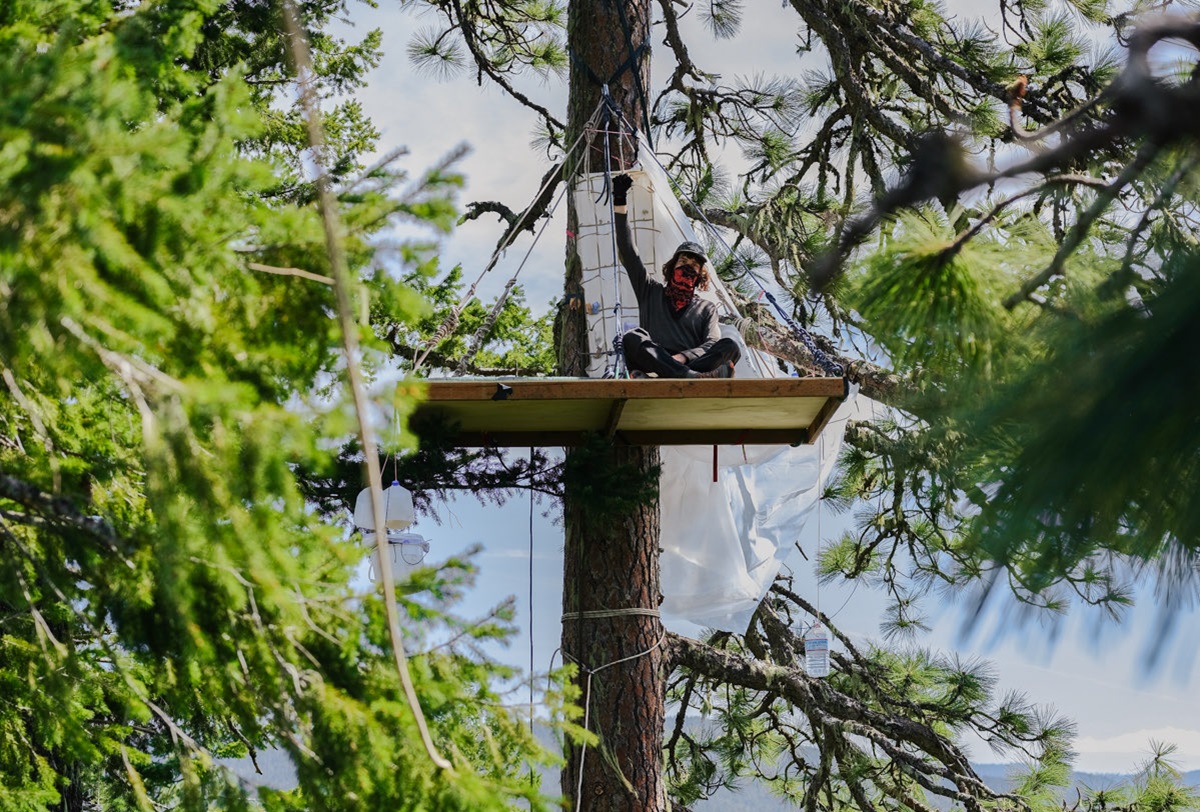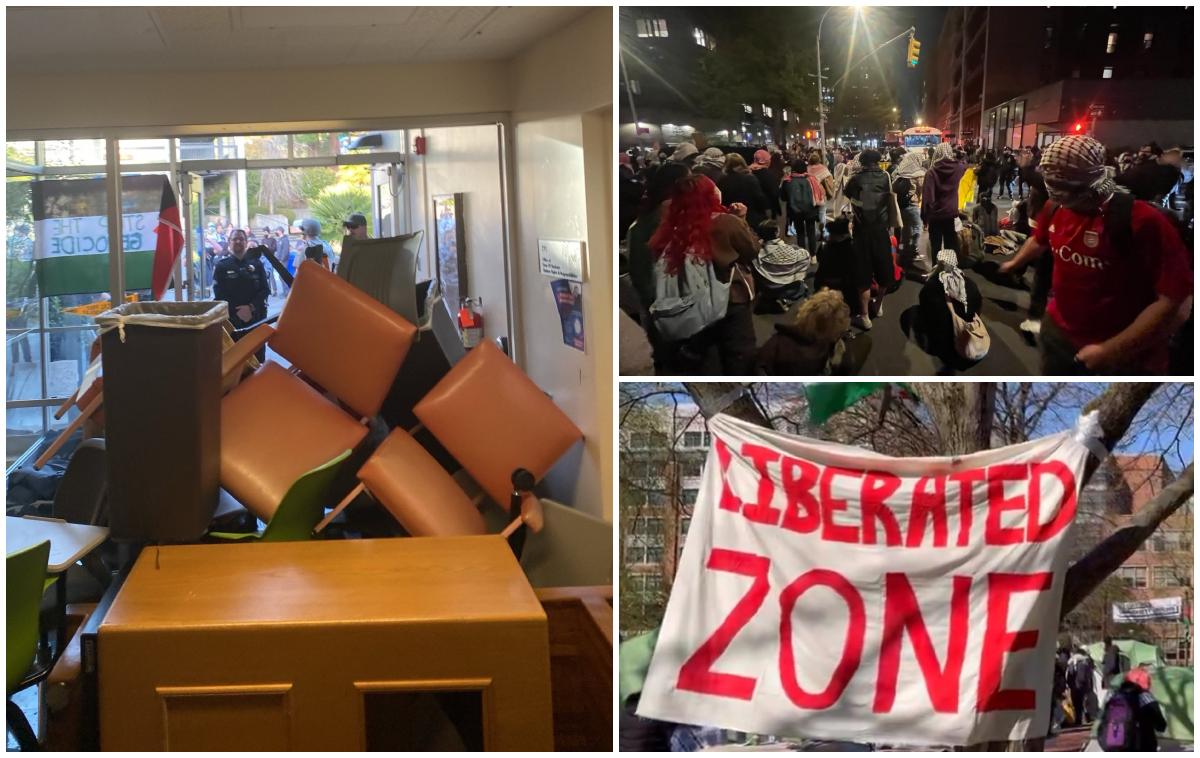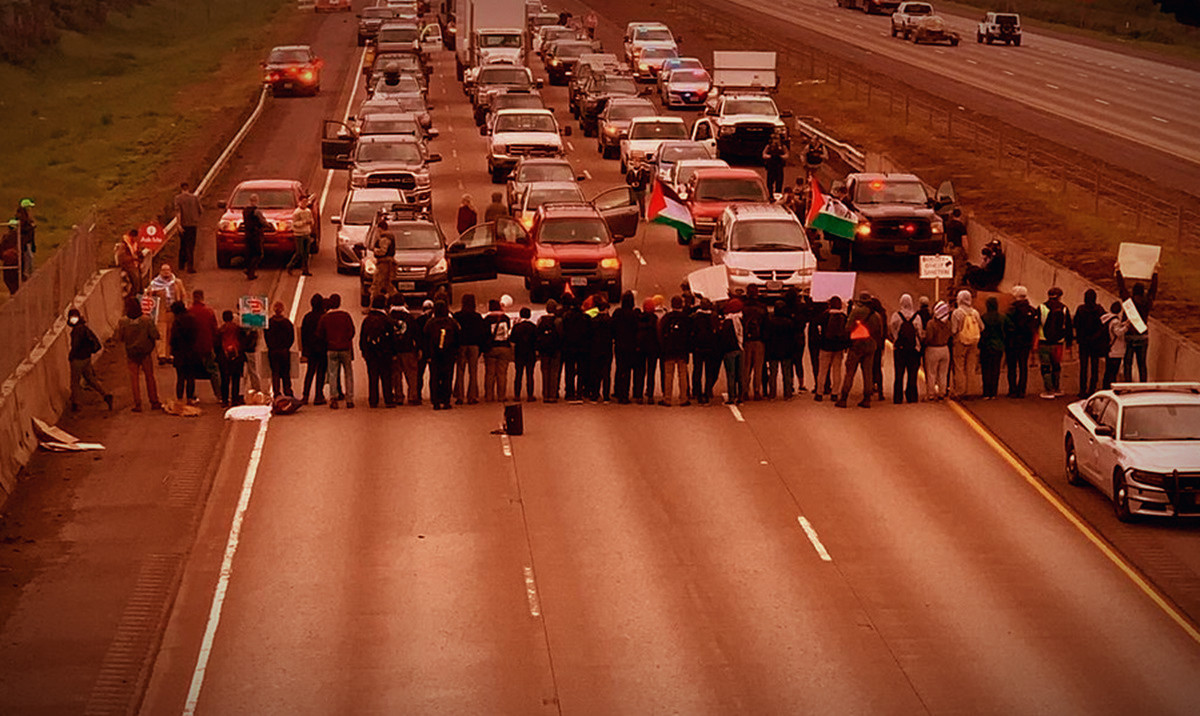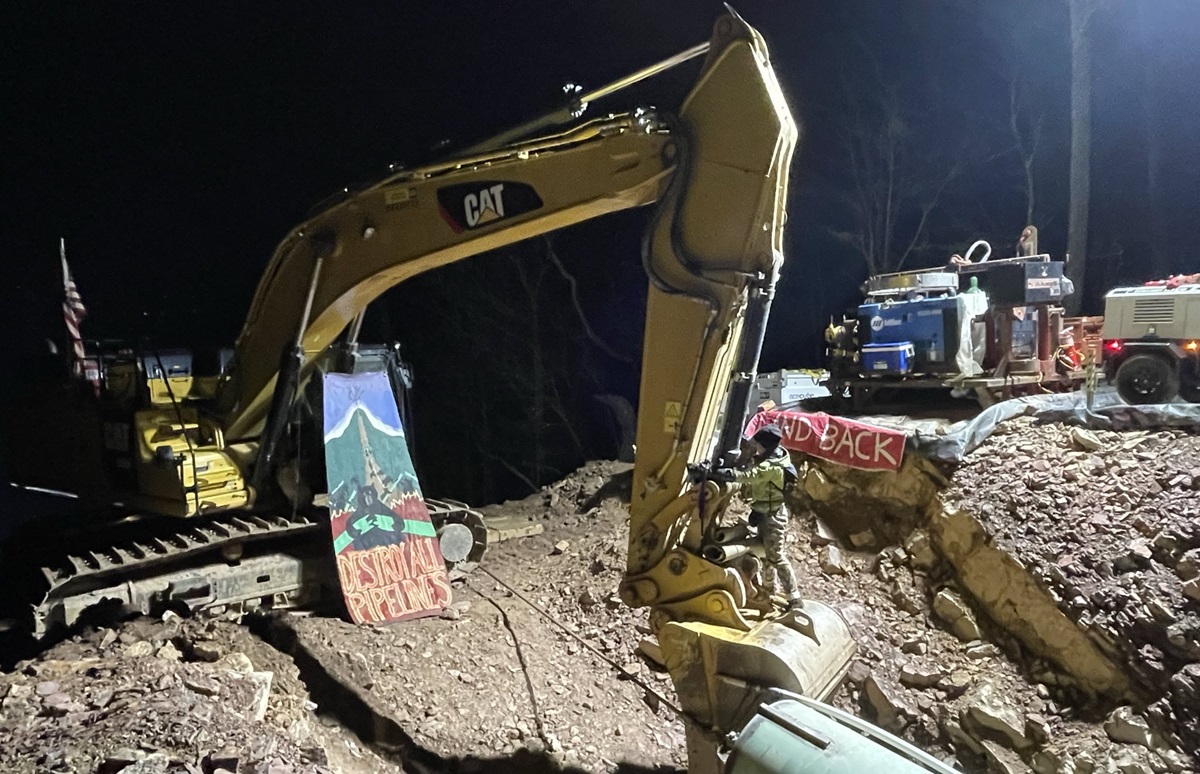Filed under: Action, Environment, Northeast
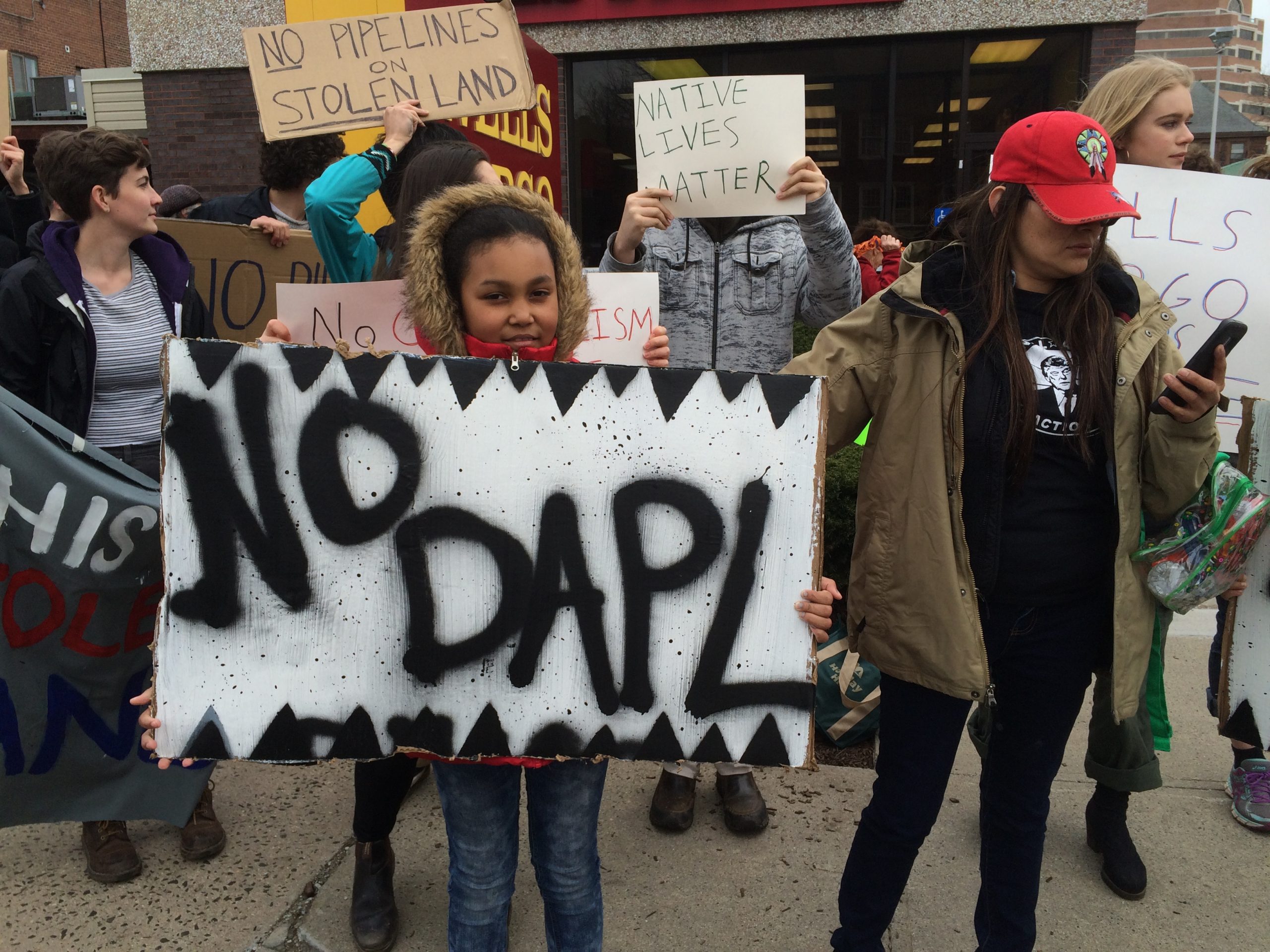
Wangunk territory of Mattabessett, or “Middletown, CT”–For nearly 2 hours, customers were unable to get into the local Wells Fargo branch. A police officer told people attempting to enter that they would not be able to do so. After all, a 77 year-old climate protester Vic Lancia had locked himself to 2 trash bins, each filled with 500 pounds of concrete and rocks, blocking entrance to the front door. Around the corner, 9 Wesleyan students linked arms in order to prevent cars from accessing the drive-thru. They chanted “You can’t drink oil, keep it in the soil!”
Local residents, students and members of climate justice groups–about 45 people in total–protested outside Wells Fargo, in opposition to the bank’s funding of the Dakota Access Pipeline (DAPL). The proposed $3.8 billion oil pipeline would threaten the drinking water and land of the Standing Rock Sioux and surrounding indigenous communities in so-called “North Dakota” and other states, posing dangers to the environment and to indigenous sovereignty. Wells Fargo has invested $120 million in the pipeline’s development.
Middletown residents and Wesleyan students have repeatedly protested at Wells Fargo over the past months, but this demonstration marked an escalation in local efforts, with people breaking the law in order to disrupt the bank’s activities.
“I will not stop letting my voice be heard as an indigenous woman. I stand here to protect water from being polluted,” said Katrina Harry, a Navajo woman who joined the demonstration.
“Settler colonialism is a structure that has displaced Native Americans from their land for hundreds of years, and the Dakota Access Pipeline is another violent colonial project endorsed by the United States government,” said Wesleyan student Angel Martin. “I am coming to show solidarity with the water protectors who resisted and are still resisting DAPL. I am coming because indigenous sovereignty matters and native lives matter.”
At the demonstration’s start, police threatened Lancia with arrest, but they were unsuccessful in their attempts to extract him. Lancia had his arms chained inside PVC pipes, which rested inside trash bins holding hundreds of pounds of concrete and rocks. Midway through the demonstration, 9 Wesleyan students made the decision to stand in the drive-thru so that cars could not do banking there. Due to the multiple disruptions, no business could occur at the bank. At the bank’s closing time at 5 o’clock, almost 2 hours after Lancia locked down, he and the other protesters left without any arrests being made.
Three climate justice groups jointly organized this protest. Wesleyan Coalition for Divestment and Transparency is a coalition of Wesleyan students who call for the divestment of fossil fuels, the Israeli occupation, and private prisons. Wesleyan Students Against the Fossil Fuel Industry is another student group which focuses on divesting from harmful energy sources. Dragonfly Climate Collective, an all-volunteer, Connecticut-based group, organizes horizontally and takes direct action in solidarity with communities most impacted by the climate crisis.
Following the U.S. Army Corps of Engineers’ 2016 approval of a portion of the pipeline running over indigenous burial grounds and ceremonial sites, the Standing Rock Sioux Tribe sued the U.S. Army Corps of Engineers for failure to adequately consult with the tribe and for violating the National Historic Preservation Act. Masses gathered at the Standing Rock reservation to act in solidarity with the indigenous land and water defenders. When people there took direct action against the pipeline’s construction, they were met with tear gas, rubber bullets, dogs, pepper spray, imprisonment, and various other forms of state-sanctioned violence. Resistance spread worldwide, encompassing everything from blockades and lock-downs to a few cases of anonymous arson. Responding to popular pressure, President Obama halted construction of the pipeline in December through an executive order, but President Trump, upon taking office, quickly reversed this decision and made plans for the construction to resume.
Vic Lancia released a statement on why he felt compelled to take action: “Wells Fargo is a major funder of the Dakota Access Pipeline. It’s full speed ahead for fossil fuels even as the destructive consequences of their use become more and more evident by the day. Their ONLY concern is profit! This is corporate tyranny! We, the people, will not continue to ignore this to the peril of the young, our planet, and its inhabitants. And that’s why I am here today disrupting business as usual at Wells Fargo. I am here to say no to profiting from climate destruction. We are part of a worldwide movement TAKING A STAND against greedy and parasitic people. We need to get in their way and tell them: ‘NO!’”



